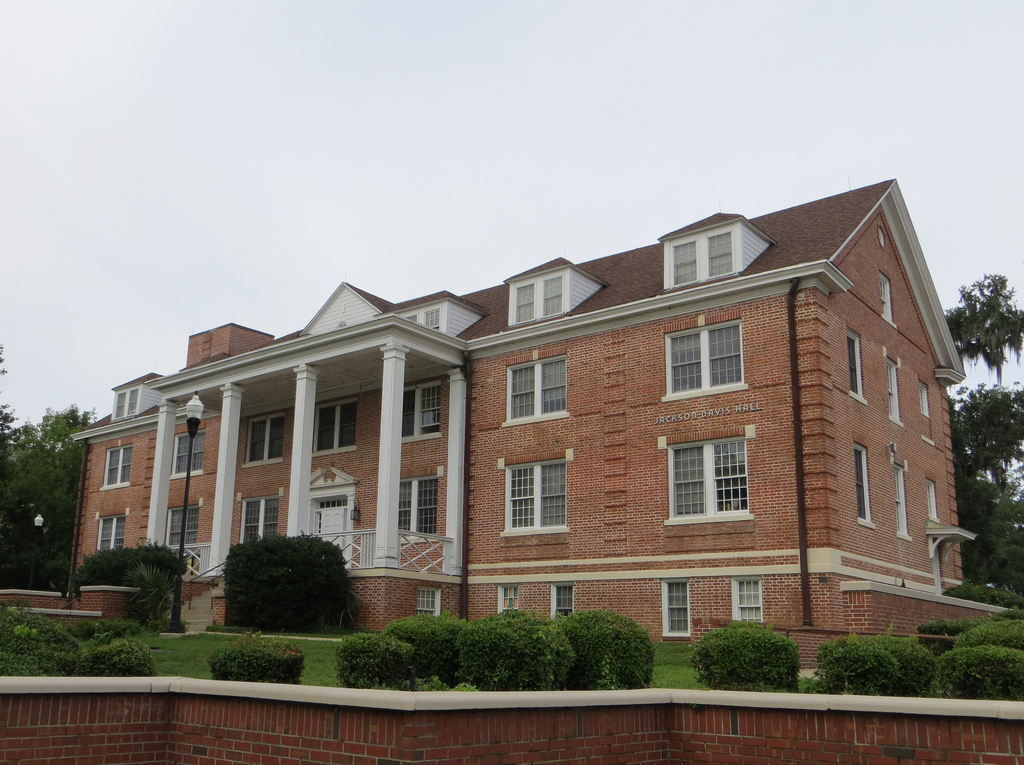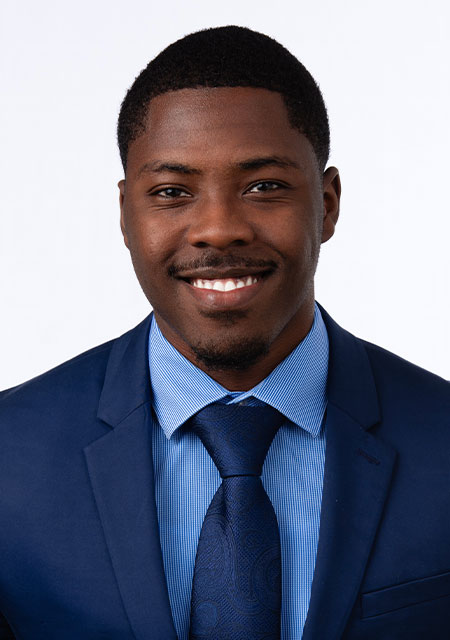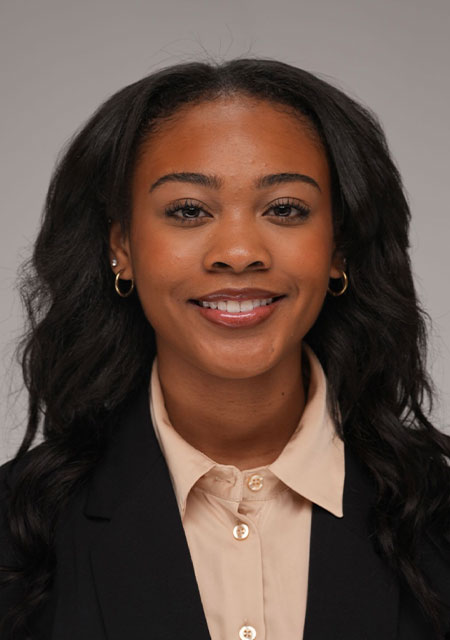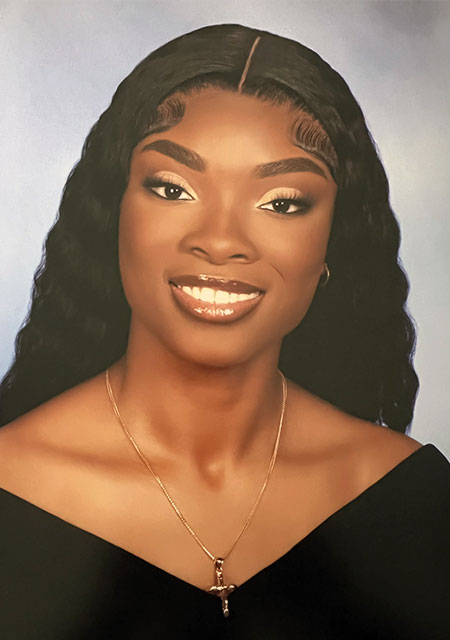Bachelor of Science in Mathematics | Actuarial Sciences
Prepare for a high-demand career at the intersection of mathematics, statistics, and finance. Our Actuarial Science degree equips students with the analytical skills needed to assess risk and solve complex problems in industries such as insurance, pensions, healthcare, and investment. With a strong focus on data analysis, probability, and business principles, this program is designed to align with professional actuarial exams and industry standards, giving graduates a competitive edge in the job market.

What is Actuarial Science?
Actuarial Science is a field of study that applies Mathematics, Probability, Statistics, Finance, Economics and Computer Science to analyze past data and use that information to make important financial decisions that may occur in the future. Actuaries attempt to analyze the economic costs of risk and uncertainty.
Actuarial scientists attempt to quantify the risk of an event occurring using probability analysis so that its financial impact can be determined. To become a certified actuary, one must pass a series of actuarial exams. In order to improve one's career prospects, it is suggested that students try to pass at least one or two exams before graduation. For the insurance industry, they develop, price, and manage insurance products. They are involved in defining and creating pension and retirement plans for organizations. They serve as financial planning advisors. Actuaries also provide financial services, such as banking and investment management. They work with government institutions such as the Social Security Administration, the Department of Labor, and Medicare to manage social programs and to develop regulations and legislation.

Actuarial Science Careers
To become a certified actuary, one must pass a series of actuarial exams. In order to improve one's career prospects, it is suggested that students try to pass at least one or two exams before graduation. Students in this track may seek for jobs in:
- Insurance industry
- Financial planning
- Banking
- Investment management
- Government institutions
- and more!
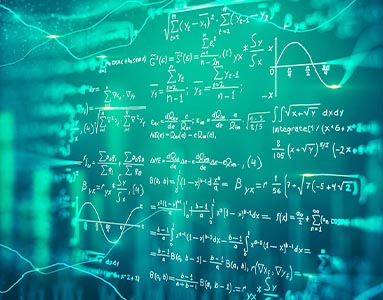
Actuarial Science Employment Expectations
- Employment of actuaries is projected to grow 22 percent from 2023 to 2033, much faster than the average for all occupations.
- About 2,200 openings for actuaries are projected each year, on average, over the decade.
- The median annual wage for actuaries was $120,000 in May 2023.

Actuarial Science Frequently Asked Questions (FAQs)
Q: What are the actuarial exams like?
A: To become an actuary, you need to pass a series of rigorous professional exams administered
by the SOA and CAS, covering topics like probability, statistics, financial mathematics,
and actuarial modeling. These challenging exams—10 in total—include both multiple-choice
and written-answer questions. Lasting between 2.5 to 5 hours, they test your deep
understanding of math and insurance principles.
Q: What is the difference between the SOA and CAS?
A: The SOA focuses more on life insurance and retirement benefits, while the CAS focuses
on property and casualty insurance.
Q: What career paths are available for actuaries?
A: Actuaries have many career paths, including: Health actuaries, Property and casualty
actuaries, Credit analysts, Financial analysts, etc.
Q: Do I need a graduate degree to be an actuary?
A: No, a graduate degree is not required to become an actuary, but it may be helpful
in certain situations. A graduate degree in math or actuarial science may be helpful
if your undergraduate degree was in an unrelated field, or if you heard about the
profession later in life. A master's degree may also help you learn concepts like
calculus, probability, and finance faster.
Q: What are the key skills required for an actuarial career?
A: Key skills required for an actuarial career include: strong analytical skills, advanced
mathematical knowledge (including calculus, statistics, and probability), excellent
communication skills, attention to detail, problem-solving abilities, proficiency
in data analysis software, business acumen, and the ability to explain complex concepts
to non-technical audiences.
Are you thinking about pursuing a career in Actuarial Sciences? Our program prepares students to become highly-trained actuarial scientists.
If you are thinking of majoring in actuarial science, consider what some of our own Rattlers had to say about FAMU's actuarial science program, what inspired them, and why they chose actuarial science as a career.
I love the rigor of the program and the pride that comes along with being a math/actuarial science student as it gives me an analytical edge in other disciplines in the curriculum.
The department fosters a community where students uplift and inspire one another and collaboration is at the heart of our success. The FAMU Mathematics department opens doors for us to showcase our skills and provides us with opportunities. Mathematics is more than equations and formulas it’s about discovering solutions, thinking critically, and challenging ourselves and I’m grateful FAMU emphasizes these values.
Mathematics is something I have always done well in. I have always like numbers and problem solving. I love a good challenge, especially the “aha” moment when I finally solve it. I also enjoy the aspect of business, including learning to market, being an entrepreneur, and management skills. So, I decided to combine the two. With my major, Actuarial Science, there is a range of curriculum, including programming, business courses, and finance, all things I enjoy. With my major, I am provided the chance to network with like minded individuals and put my skills to use. Actuarial Science is more than a degree, it is the opportunity for abstract thinking.
Program Faculty
|
Name |
|
Phone |
| Ajith Gunarante Chair, Professor |
(850) 561-8569 | |
| Pierre Ngnepieba Professor, Associate Dean |
(850) 412-5978 | |
| Richard Andrews Instructor |
(850) 599-3755 | |
| Narayana Bandara Assistant Professor |
(850) 599-8732 | |
| Kbenesh Blayneh Professor |
(850) 412-5228 | |
| Maria Dofing Adjunct |
(850) 599-3755 | |
| Nora Entekhabi Assistant Professor |
(850) 412-5230 | |
| Mohsen Gheibi Instructor |
(850) 412-5230 | |
| Cong Hoang Assistant Professor |
(850) 412-5239 | |
| Andrew Jones Professor |
(850) 459-3222 | |
| Vaslie Lauric Professor |
(850) 412-5234 | |
| Solomon Manukure Assistant Professor |
(850) 412-5232 | |
| Erdell Maurice Instructor |
(850) 412-5233 | |
| Joseph Mokher Instructor |
(850) 412-5229 | |
| Daniel Osborne Associate Professor |
(850) 412-7926 | |
| Jamil Perkins Instructor |
(850) 599-8404 | |
| Calvin Robinson Adjunct |
(850) 599-3755 | |
| Tony Se Assistant Professor |
(850) 412-5231 | |
| Elise Simmons Instructor |
(850) 599-8403 | |
| Desmond Stephens Associate Professor |
(850) 329-0236 | |
| Sonya Stephens Associate Professor |
(850) 561-0236 | |
| Madhav Wagley Instructor |
(850) 412-5241 | |
| Roslyn Williams Professor |
(850) 412-5236 |
Actuarial Science Track
| Course | Name | Hours |
| ENC 1101 | Freshman Communication Skills I | 3 |
| MAC 2311 | Calculus I | 4 |
| AMH 2091 | Introduction to African American History | 3 |
| Humanities Core | 3 | |
| ISC 1058 | Scientists Life Skills | 2 |
| Course | Name | Hours |
| ENC 1102 | Freshman Communication Skills II | 3 |
| STA 2023 | Probability and Statistics | 3 |
| COP 3014C | Programming in C Language | 4 |
| MAC 2311 | Calculus II | 4 |
| MAN 2543 | Introduction to Business Systems | 3 |
| Course | Name | Hours |
| MAC 2313 | Calculus III | 5 |
| STA 3034 | Mathematical Statistics (fall only) | 3 |
| MAS 3105 | Linear Algebra | 3 |
| SPC 2608 | Public Speaking | 3 |
| Approved Science Sequence* | 4 |
| Course | Name | Hours |
| COT 3100 | Discrete Mathematics | 3 |
| MAP 2302 | Differential Equations | 3 |
| Humanities Elective | 3 | |
| Approved Science Sequence* | 4 | |
| Social Science Core | 3 |
| Course | Name | Hours |
| MAD 3401 | Numerical Analysis (fall only) | 3 |
| ECO 2013 | Principles of Economics I | 3 |
| ACG 2021 | Financial Accounting Principles | 3 |
| MAT 4937 | Senior Seminar I (fall only) | 3 |
| Social Science Elective | 3 | |
| Elective | 3 |
| Course | Name | Hours |
| ACG 2301 | Managerial Accounting | 3 |
| ECO 2023 | Principles of Economics II | 3 |
| FIN 3403 | Corporate Finance | 3 |
| Elective | 3 |
| Course | Name | Hours |
| MAA 4211 | Advanced Calculus I (fall only) | 3 |
| MAN 3025 | Principles in Management | 3 |
| RMI 3011 | Principles of Risk Management & Insurance | 3 |
| Electives | 6 |
| Course | Name | Hours |
| MAP 4103 | Mathematical Modeling | 3 |
| MAR 3023 | Principles of Marketing | 3 |
| Elective | 3 |
*Approved Science sequences:
General biology (BSC 1010/L, BSC 1011/L)
General chemistry (CHM 1045/L, CHM 1046/L) or
General physics (PHY 2048/L, PHY 2049/L)
